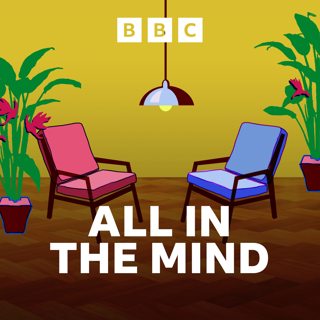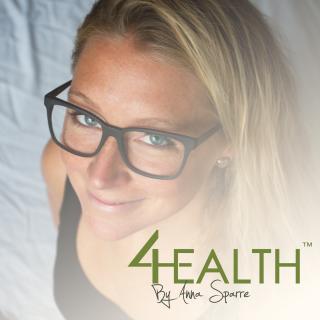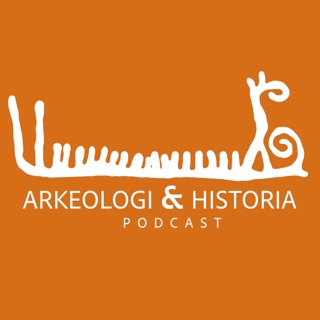
Navigating the Pacific without technology
How well can you remember the details of your childhood? Sometimes, the memories are there, but a little hazy. But what if you could trick your brain into thinking you looked like your younger self again? Would that help you recall more childhood memories? A new study has tried exactly this, so Claudia Hammond meets Professor Jane Aspell to have a go at an illusion that makes you believe you have a younger version of your face.Imagine navigating across an ocean, only using the feel of waves hitting your boat to locate yourself. That’s exactly what master navigators in the Marshall Islands do, and in August, Professor Hugo Spiers and doctoral student Maria Ahmad joined local sailors on a three day voyage in the Pacific. They tell Claudia how Marshallese sailors are able to navigate in this way and what this can teach us about the brain.And Claudia is joined in the studio by Daryl O’Connor, professor of psychology at the University of Leeds. Daryl shares how self-affirmation can be an easy intervention to boost wellbeing, and new research on why the more often you see a public health campaign, the less your brain engages with the message. Presenter: Claudia Hammond Producer: Sophie Ormiston Editor: Ilan Goodman Studio Manager: Sue Maillot Production coordinator: Jana Bennett-Holesworth
25 Nov 28min

Asylum hotels and mental health
More than 32,000 asylum seekers are being housed in hotels in the UK, the latest figures show.There's been intense political debate in recent weeks focused on the cost – both financially for the government and for local communities. But what about the cost to the mental health of those living in the hotels? Today we’re going to hear from an asylum seeker who spent more than a year in a hotel in London, and we’ll examine the evidence for the impact on people’s mental health with clinical psychologist Dr Janelle Spira. Dr Peter Olusoga, senior lecturer in psychology at Sheffield Hallam University, joins us in the studio with the latest research, including a study that raises the prospect of using a common acne drug to cut risk of schizophrenia and new evidence on the psychology of losing.And what if we could mentally reframe winter to make it more enjoyable? We get some tips from clinical psychologist Dr Stephanie Fitzgerald.Presenter: Claudia Hammond Producer: Gerry Holt Content editor: Ilan Goodman Production coordinator: Jana Holesworth Studio engineer: Tim HefferDetails of organisations offering support with mental health, or feelings of despair, are available at bbc.co.uk/actionline.
18 Nov 28min

Are mental health classes in schools working?
It is now compulsory for schools across the UK to teach children about mental health and wellbeing. Whilst it might seem like classes for everyone on these topics might be helpful, a new study has found that in some cases, they may actually be worsening mental health problems. How could this be? Claudia Hammond is joined by Dr Lucy Foulkes to discuss the possible reasons why.Listener Paul got in touch to ask why some drivers get road rage. What is it about being in a car that makes people see red? On hand to answer is traffic psychologist Professor Dwight Hennessy, who has been studying the phenomenon for years.And Claudia is joined in the studio by Catherine Loveday, Professor of Cognitive Neuroscience at the University of Westminster. Catherine brings us new research looking at how we remember emotional memories and why musicians show a higher resistance to pain. Plus, we reflect on some of your feedback on hoarding disorder.Presenter: Claudia Hammond Producer: Sophie Ormiston Editor: Ilan Goodman Studio Manager: Donald MacDonald Production coordinator: Jana Bennett-Holesworth
11 Nov 28min

Should we be using trigger warnings?
This programme may contain information that you might find to be evidence-based and informative... Trigger warnings are everywhere. They’re used in the news, on social media and in academia to flag potentially distressing material so we can emotionally prepare ourselves or avoid it. But what if they actually make things worse? We interrogate a growing body of evidence that suggests they aren’t working in the way they are intended. So should we still be using trigger warnings?Also this week, we’ll hear from psychotherapist and author Stephen Grosz who'll share what he has learnt about love and gift-giving from four decades of conversations with his patients. And Daryl O’Connor, Professor of Psychology at the University of Leeds, joins us in the studio and brings news of a study on links between discrimination and inflammation in the body, and why carrying out acts of kindness for others comes with benefits for you...Presenter: Claudia Hammond Producer: Gerry Holt Content editor: Ilan Goodman Production coordinator: Jana Holesworth Studio engineer: Bob Nettles
4 Nov 28min

Are there multiple subtypes of autism, and how vivid are your memories?
Autism tends to be viewed as a spectrum, but a new study published this month in Nature suggests that there are both genetic and behavioural differences between early and later diagnosed autism. So is autism still a spectrum, or should we be thinking of it as having multiple different subtypes? Claudia Hammond talks to Professor Uta Frith, who has pioneered autism research for decades, about what this means for how we view autism now. The universities of Cambridge and Durham are launching a study to help them unlock the secrets of vivid memory. Postdoctoral researchers Kasia Mojescik and Martha McGill tell Claudia how they plan to find out what makes a memory vivid, why some memories are more vivid than others, and how people can get involved in their work.And Claudia is joined in the studio by Catherine Loveday, Professor of Cognitive Neuroscience at the University of Westminster. Catherine brings us new research on how state-level income inequality can impact how children’s brains develop, and the myriad ways music can affect dining experiences.If you'd like to take part in the vivid memories research survey, you can find it here: https://www.english.cam.ac.uk/research/memory/get-involved/ Presenter: Claudia Hammond Producer: Sophie Ormiston Editor: Ilan Goodman Studio Manager: Donald MacDonald Production coordinator: Jana Holesworth
28 Okt 29min

Why do we hoard?
Many of us can empathise with that feeling of keeping stuff for years and years. We might keep treasured objects with real sentimental value, or we might have items for a long time - and yet we can't really explain why. For those of us who don’t like getting rid of our belongings, life can feel very full of stuff. But when does a tendency to hold on to things become more worrying? It can be difficult to put a figure on just how many people have what's known as hoarding disorder but it was classified as a mental health condition in 2013. So what causes this complex and little discussed issue – and is it more than just a problem of too much stuff? Claudia visits a woman who describes how hoarding has taken over her life to the extent that she doesn’t let anyone into her home. We also meet her psychologist to understand what underpins hoarding disorder and how it’s treated. And joining us in the studio is Daryl O’Connor, professor of psychology at the University of Leeds, who brings an intriguing study about a phenomenon known as “environmental sensitivity”. He explains what it is and its new-found links with very common mental health conditions.Presenter: Claudia Hammond Producer: Gerry Holt Content editor: Ilan Goodman Production coordinator: Jana Holesworth Studio engineer: Tim HefferDetails of organisations offering help and support with mental health or self-harm are available at bbc.co.uk/actionline.
21 Okt 28min

What is beliefism, and can you spot a liar?
Just looking at the news can give the feeling that today’s world is more polarised than ever. And the stats show that in Britain, the majority of people believe that society is divided. How can we go about bridging this divide? Paul Dolan, professor of behavioural science at LSE, has written a book called Beliefism on exactly this. He chats to presenter Claudia Hammond about how we can learn to get along with people we disagree with, and how doing this can impact our lives for the better.Also, The Celebrity Traitors starts this Wednesday on BBC One. To convince their fellow contestants that they’re innocent, the Traitors have to be pretty good at deception. But how can the Faithfuls successfully identify their lies? Claudia speaks to Sharon Leal, senior research fellow in forensic psychology at the University of Portsmouth, to scrutinise the psychological evidence on deceit – and Sharon’s research has real life impacts on how police conduct their interviews. And Claudia is joined in the studio by Pete Olusoga, senior lecturer in psychology at Sheffield Hallam University. Pete shares new research that suggests the bigger a problem is, the smaller it seems, and how being nosy at work could be causing undue stress. Presenter: Claudia Hammond Producer: Sophie Ormiston Editor: Ilan Goodman Studio Manager: Emma Harth Production coordinator: Jana Holesworth
14 Okt 28min

The rise of AI therapy
Would you ever share your most intimate, personal circumstances with an AI - and then use its advice in your day-to-day life?If the answer is yes, then you are not alone. Many people are turning to human-like AI chatbots for help with their mental health. So we're going to spend the programme exploring the fascinating and growing phenomenon of AI therapists. We’ll find out how and why people are using it by listening in to some very personal AI ‘therapy’ sessions. How does it work - and can it be effective? As its real-world use far outpaces the evidence, we’ll find out the potential pitfalls – and positives.Can AI therapy really help us?Presenter: Claudia Hammond Presenter's friend: Professor Catherine Loveday Producer: Gerry Holt Researcher: Mohan Shi Content editor: Ilan Goodman Production coordinator: Jana HolesworthDetails of organisations offering support with mental health, or feelings of despair are available at bbc.co.uk/actionline.
7 Okt 28min





















